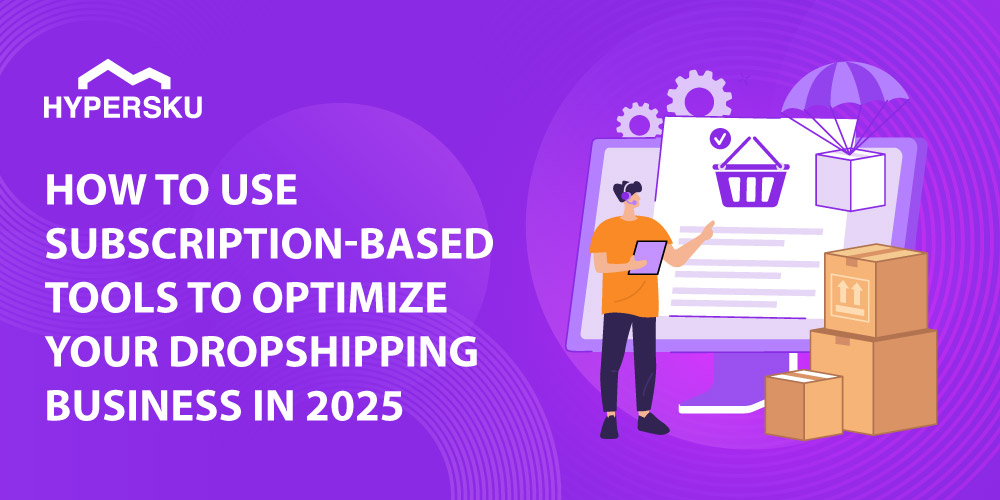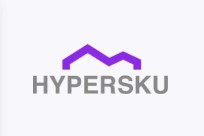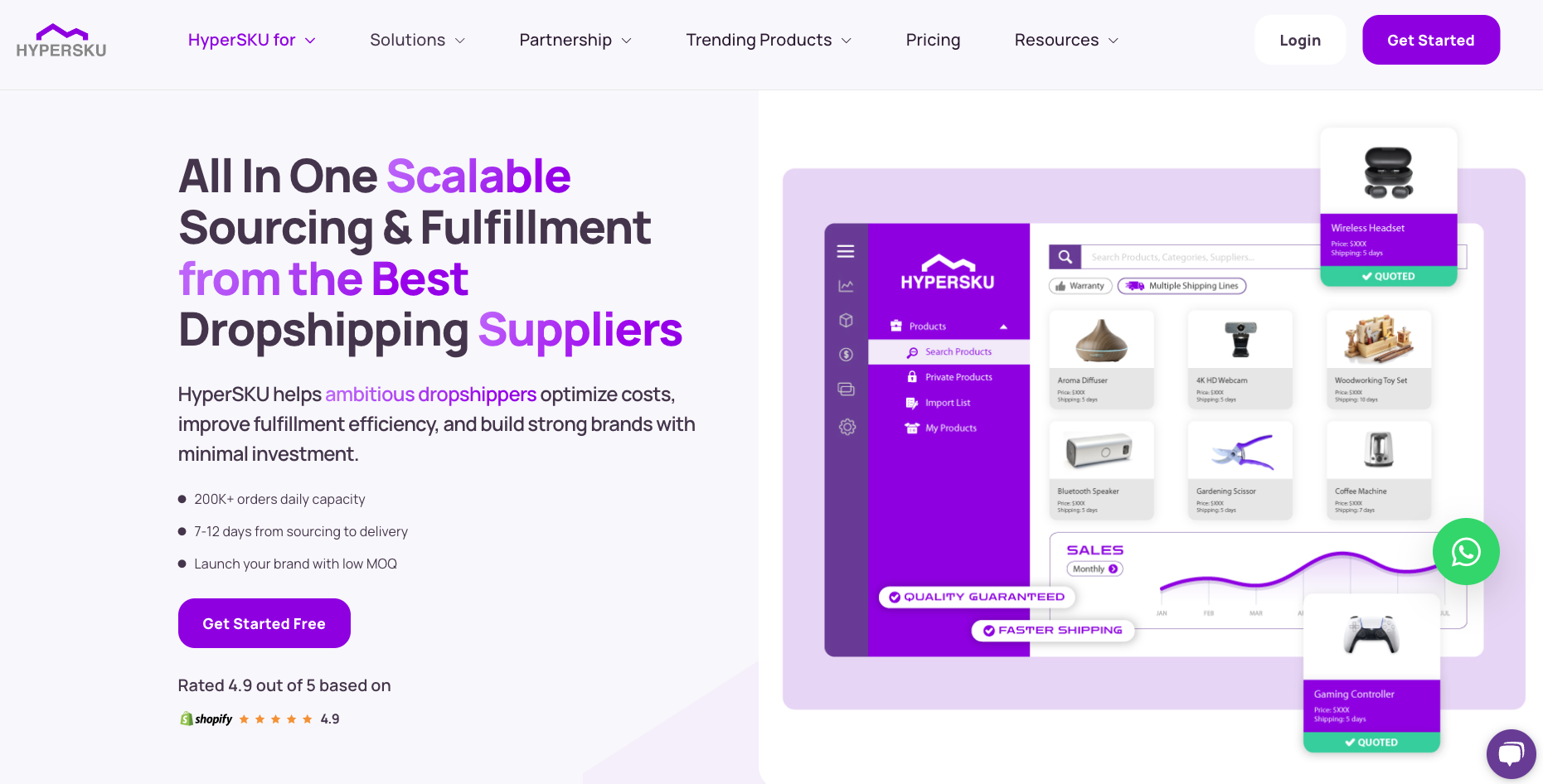How to Use Subscription-Based Tools to Optimize Your Dropshipping Business in 2025
Running a dropshipping business means managing inventory, orders, logistics, and suppliers—often a complex, manual process. Subscription-based tools simplify this by automating tasks like syncing, payments, and customer engagement.
But not all great tools cost money. Platforms like HyperSKU offer key features without monthly fees, helping you save time and grow your business efficiently.


HyperSKU
Posted on March 13, 2025
What Are Subscription-Based Tools, and Why Do Dropshippers Need Them?
Running a dropshipping business is no small feat—that’s exactly why reliable dropshipping tools are essential. From product sourcing and order processing to inventory updates and logistics, these tools help streamline and automate operations that would otherwise be manual and time-consuming.
Unlike one-off software or outsourced help, subscription-based tools—whether they’re apps or platforms—offer ongoing services like:
- Inventory & order sync
- Fulfillment management
- Integration with Shopify, WooCommerce, and other platforms
- Performance analytics and automation
These tools may charge you a monthly or annual fee, but they’re built to save time, reduce errors, and scale your operations efficiently.
Now, you might be thinking: “Why not just work with a private agent?”
That’s a fair question. In fact, many dropshippers start with private agents because they offer lower upfront costs. But here’s the catch:
Private agents often operate manually—processing orders in spreadsheets, tracking inventory via chat, and juggling logistics without a centralized system.
While they’re affordable, they usually lack:
- Real-time sync with your store
- Automation for order & shipping processes
- API integrations with eCommerce platforms
- System-level data visibility and control
In contrast, subscription-based tools or fulfillment platforms—like AutoDS, Spocket, —may charge you more than a private agent does, but they offer:
- Automated workflows
- Real-time order & inventory sync
- Faster, more reliable fulfillment
- Built-in tracking & integrations
- Seamless scaling for growing stores
HyperSKU provides the best of both worlds:
A platform-based experience with no subscription fees, offering the structure, automation, and global logistics support you’d expect from a premium tool, without the ongoing cost.
AI Tools vs. Subscription-Based Dropshipping Tools: What’s the Difference?
In the world of dropshipping and eCommerce, both AI tools and subscription-based tools play crucial roles. However, they serve different purposes and functions. To help clarify these differences, let’s compare them side by side:
|
Feature |
AI Tools |
Subscription-Based Tools |
|
Purpose |
Creative automation & data-driven decision-making |
Day-to-day operations and system integration |
|
Functionality |
Content generation, email marketing, AI-powered chatbots, store builders |
Inventory sync, order fulfillment, supplier management, system automation |
|
Role in eCommerce |
Acts like your creative assistant—enhancing how you attract & convert customers |
Acts like your backend engine—powering how you process orders & deliver products |
|
Examples |
ChatGPT, Tidio, AdCreative.ai, Copy.ai, Durable AI Store Builder |
AutoDS, ReCharge |
Breakdown of Differences:
- Purpose: AI tools focus on automating creative and decision-making tasks, like content generation and marketing optimization. Subscription-based tools, on the other hand, automate and manage the day-to-day operations of an eCommerce business, such as inventory synchronization and order fulfillment.
- Functionality: AI tools often deal with tasks that require intelligence, such as writing product descriptions, generating ad creatives, or interacting with customers via chatbots. Subscription-based tools handle backend operations, like syncing inventory, fulfilling orders, and managing suppliers.
- Role in eCommerce: AI tools serve as your creative assistant, enhancing how you attract customers and make smarter decisions. Subscription-based tools are more like the engine that powers the operational side of your business—processing orders and ensuring smooth delivery.
If you’re interested in learning more about AI tools and how they can transform your marketing, customer engagement, and creative strategies, feel free to check out our previous blog on the Best AI Tools for Dropshipping. It dives deeper into how AI can be your creative assistant and help you grow your eCommerce business.
Top Subscription Tools for Your Dropshipping & eCommerce Store
Running a dropshipping business in 2025 means managing multiple moving parts—product sourcing, inventory updates, order processing, shipping, and customer support. That’s where subscription-based tools come in: they help automate your backend operations, streamline processes, and ultimately scale your store with fewer manual tasks.
Here’s a breakdown of how these tools can elevate your business:
1. Automation & System Integration
Order & Inventory Management
- Tools like AutoDS help automate product imports, inventory sync, and order fulfillment.
- Duoplane and Inventory Source offer advanced automation for syncing suppliers, integrating with marketplaces, and managing multi-store logistics.
Shipping Automation
- ShipStation and Easyship simplify multi-carrier shipping, label printing, and customs forms for global fulfillment—cutting down operational time and errors.
2. Product Sourcing & Supplier Management
Sourcing Platforms
- Platforms like Spocket and Syncee let you connect with verified suppliers and sync product data to your store, but they usually come with monthly subscription fees.
- Dropified offers sourcing from AliExpress and US-based suppliers, with automation for product edits and updates.
HyperSKU offers a flexible alternative—no monthly fees, fast shipping from China, and stable product sourcing from selected suppliers, all wrapped in a “subscription-like” experience.
3. Inventory Control Across Multiple Suppliers
Managing stock is critical. Tools like Inventory Source and Duoplane help:
- Sync stock levels from multiple suppliers.
- Prevent overselling.
- Automate low-stock alerts and backorder handling.
If you’re working with more than one supplier or managing SKUs across different platforms, these tools can be essential to keeping your backend tight and accurate.
4. Customer Service & Support (Without AI)
AI tools like bots are great—but in this section, we’re focusing on non-AI subscription tools that offer reliable customer support workflows.
- HelpCrunch, Freshdesk, and Zoho Desk provide ticketing systems, chat widgets, auto-responses, and support pipelines—without AI decision-making involved.
- These tools help you scale your support team and improve response time as your business grows.
5. Subscription Offers & Payment Handling
Looking to add recurring revenue to your business?
- Tools like ReCharge and Bold Subscriptions help you set up subscription boxes—curated product bundles that go out monthly.
- Popular in beauty, fashion, and pet niches, these models increase customer lifetime value and create brand loyalty.
Why Choose HyperSKU Instead?——No subscription fee applies
The ultimate goal of any tool is to free up your time while improving results. By integrating a few key subscription-based tools, you can:
- Reduce human error
- Improve fulfillment speed
- Boost customer satisfaction
- Focus on marketing and brand building
While many platforms charge a monthly subscription for similar services, HyperSKU offers a subscription-like experience with no recurring fees.
No Monthly Fees – You only pay when you sell, giving you the flexibility to scale without fixed costs.
Full Backend Support – From supplier management to automated fulfillment, HyperSKU powers your backend engine just like other platforms, without the price tag. We also got dedicated 3 to 1 support for you to achieve your eCommerce growth.
Cross-Border Logistics – HyperSKU connects you to a network of verified suppliers and handles global fulfillment with real-time tracking.
Less Manual Work, More Control – Compared to private agents who often rely on spreadsheets and manual follow-ups, HyperSKU gives you a professional dashboard to manage operations efficiently.
You get all the key benefits of a subscription-based tool, without committing to another monthly bill.
Final Thoughts
Subscription-based tools can streamline, automate, and scale your dropshipping business—but that doesn’t mean you have to pay a monthly fee to get those advantages. Platforms like HyperSKU are built to give you a robust, no-subscription experience with the same powerful features that competitors charge for.
Curious how HyperSKU can work for your business? Start exploring here!

